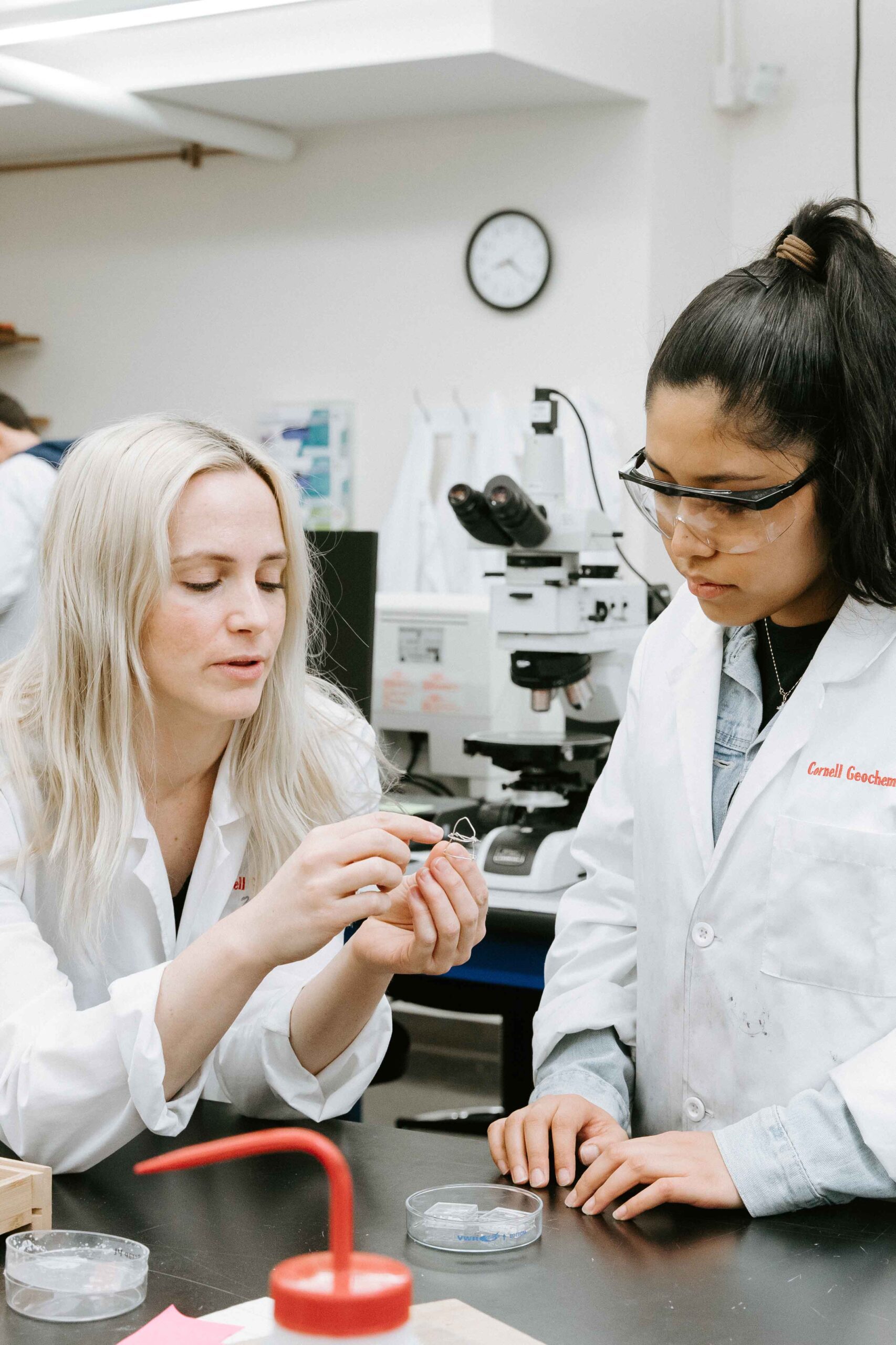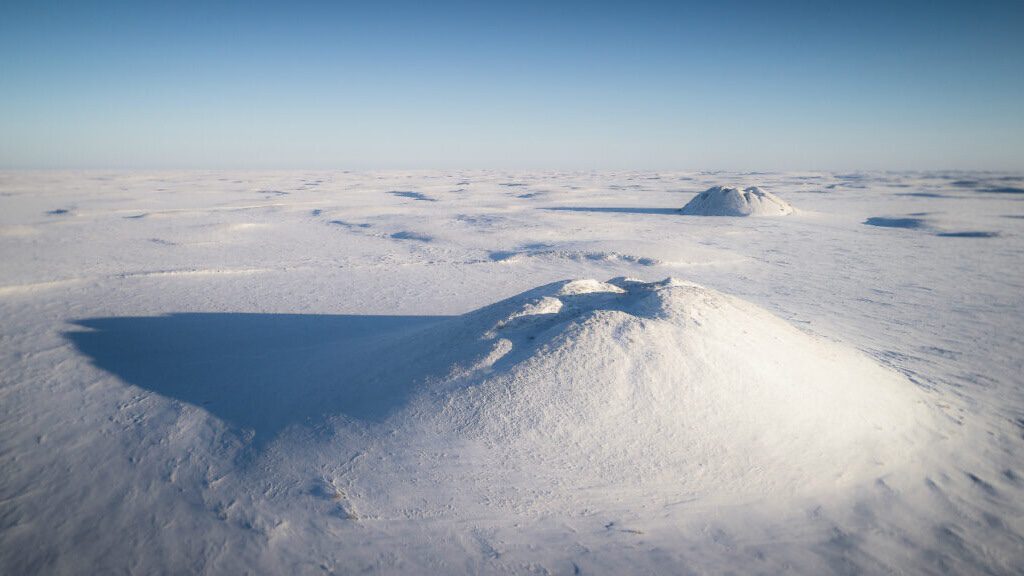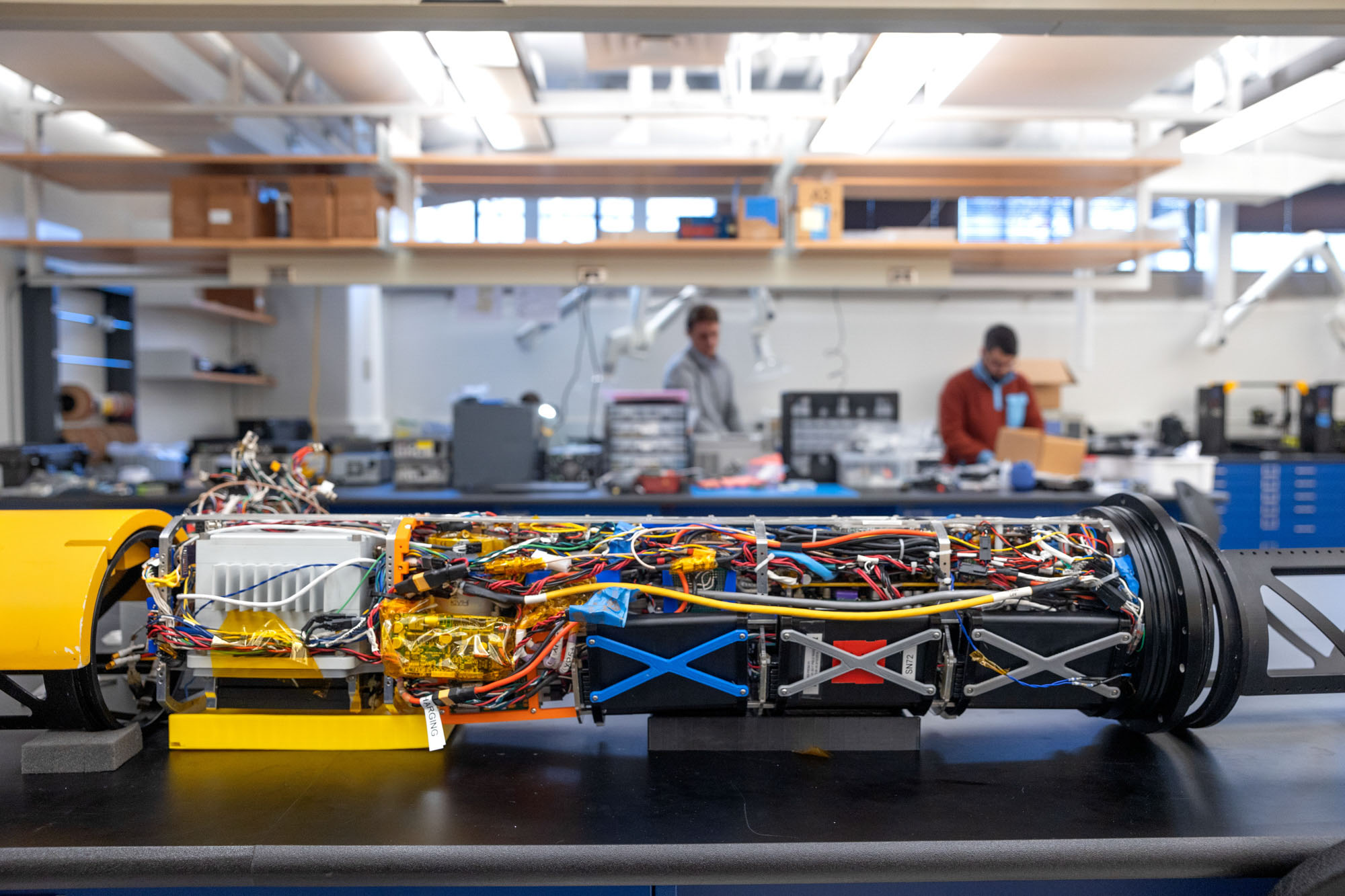Our graduate program in atmospheric science is a relatively small, high quality program. Faculty members do not advise large numbers of graduate students, and this provides students with the opportunity to work closely with their advisor. This individual attention is combined with the advantages of a large and diverse research university, and the beautiful, livable environment of Ithaca.
We welcome applications from students with various backgrounds, such as physics, chemistry, engineering, geological sciences, and mathematics, in addition to the atmospheric sciences. Each of these backgrounds can be appropriate for an advanced degree in atmospheric science, but all applicants should have a solid undergraduate-level background in physics and mathematics.

Program Highlights
-
Faculty Interaction
Faculty members typically do not advise large numbers of graduate students, allowing for close, individualized attention. This provides students with the opportunity to work closely with their advisors while benefiting from the advantages of a large, diverse research university.
-
Research Focus
Students are encouraged to explore the research interests of faculty members to identify those whose research aligns with their own. Prospective students can contact faculty directly for more information about their research programs, or reach out to the director of graduate studies, for questions about the graduate program.
-
Financial Support
All students accepted into the program receive full financial support, including tuition, stipend, and health insurance. Graduate research assistantships are available through the Department of Earth and Atmospheric Sciences or faculty external grants. Teaching assistantships are also available through the Department of Earth and Atmospheric Sciences. Students are encouraged to apply for fellowships and scholarships from agencies such as NSF, NASA, AMS, NOAA, and others that support the atmospheric sciences.
Graduate Courses
Graduate students in the field of atmospheric science take courses in many departments across the university. Course selection is made in consultation with the major advisor and other committee members, and takes into consideration the interests, prior coursework, and thesis topic of the student. Coursework may also be required to satisfy the minor requirements. It is not atypical for graduate students to take a combination of graduate and undergraduate courses in various departments, especially during the first two semesters of study at Cornell.
The Graduate Student Handbook, travel reimbursement forms, scholarship applications, and other student resources are available at Graduate Student Resources and Forms
Additional Opportunities
-
![Tubular Icefin robot on a table in a lab. Outer shell is off and many wires and circuits are showing. Two researchers are at tables in the background.]()
Centers, Facilities and Institutes
The Department of Earth and Atmospheric Sciences is home to several cutting-edge centers, labs, and institutes that drive our groundbreaking research.
-
![Two EAS students stand inside the Ecology House Contest construction they were part of creating.]()
Student Groups and Organizations
Explore the diverse range of student organizations and clubs available to enhance your academic journey and connect with peers who share your interests.

-
Location
Cornell is located in the beautiful New York Finger Lakes region with an abundance of outdoor activities, natural beauty and thriving restaurant and brewery scene. Ithaca is also within easy driving distance of New York City, Boston, Philadelphia and Washington, D.C.
Contact
-
Director of Graduate Studies
Toby Ault
toby.ault@cornell.edu -
Assistant Director of Graduate Programs and Course Coordinator
Sierra Henry
slh297@cornell.edu
607-255-8737


